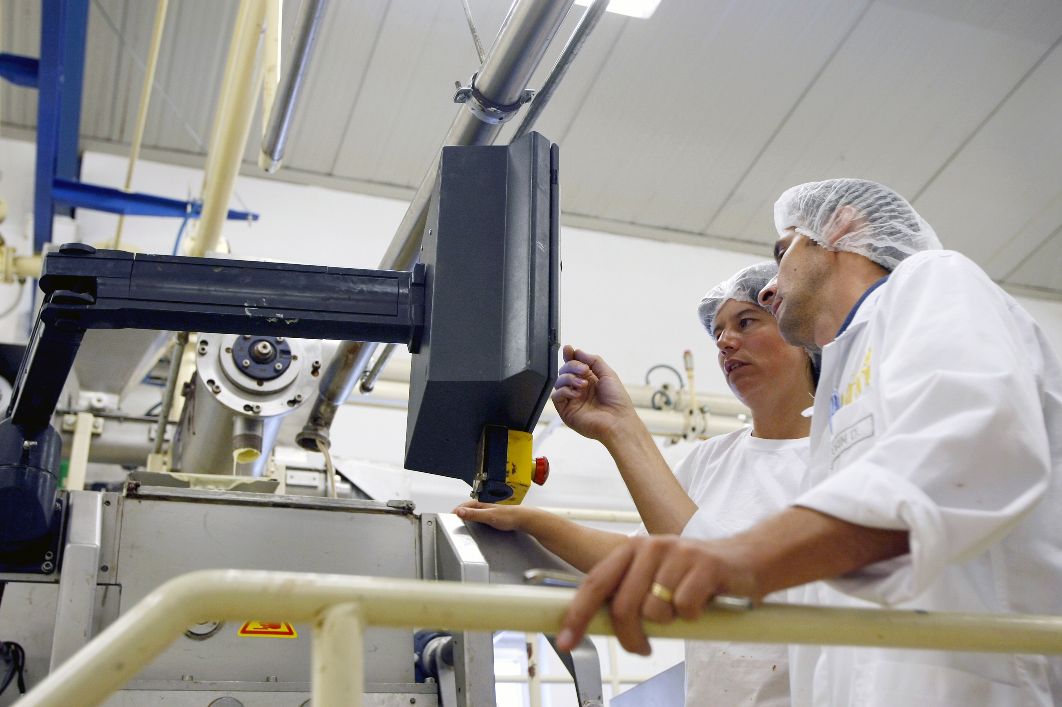The food industry is facing a very challenging environment. Climate change, water scarcity, food insecurity, net zero and waste requirements, and growing customer wants demands rapid, intense change.
Sustainability a Priority
According to the World Resources Institute, food production must increase by 58% by 2050 to feed the population of approximately 9.3 billion.
Yet, a quarter of greenhouse gases are due to agriculture and half of all food is either lost or wasted. Clearly, it is impossible to meet food needs without drastic change.
Fortunately, the International Union of Food Science and Technology recognizes technology will play a significant role in the transformation of our food system. Innovations in many areas can increase food production, strengthen supply chains, reduce waste, and satisfy consumers.
Food Industry Technology Reduces Environmental Impact
Many innovative companies are exploring plant-based foods and alternative proteins. However, technology holds the greatest promise regarding the reduction of the food industry’s impact on the environment.
As an example, the World Economic Forum estimates artificial intelligence could unlock $127 billion in value per year in the food industry by 2030. Since AI is just one subset of available disruptive technologies, the overall potential to reduce resource use and wastage and increase energy efficiency is vast.
Innovation Optimizes Processes & Operations
A recent study found that companies that invest in sustainability enjoy improved resilience and operational performance.
Robust data collection and analysis, improved connectivity, and real-time monitoring through Internet of Things sensors and devices can improve how business processes food. Machine and software automation can also help companies increase food output rapidly in a tight labour market.
According to the Institute of Food Technology, digital innovations can also connect front to back processes to “smooth out surges and prevent process upsets”. Analytical tools can also help companies create a predictive maintenance approach so they can continually innovate and remain relevant.
Digital Tools Can Satisfy Consumers
During the pandemic, smaller, more agile brands met consumer demands through personalization. Consumers became more aware of where their food comes from and now want to know how it is handled too.
The push for locally sourced foods means the food industry must find new ways to acquire raw materials. Those in the industry must also improve food visibility and food safety measures. Companies must achieve this while meeting net zero and waste targets.
Luckily, technological innovation can help business solve these and other challenges companies in food and agriculture face.
Solving Food Industry Problems
New and emerging technologies have always been a part of the food industry, but they never been as important as now. Artificial Intelligence, Internet of Things, and production automation tools are available to business to increase efficiency, reduce costs, improve quality, and increase supply chain visibility.
Green technologies can also help food processors reduce their carbon footprint and minimize waste. Additionally, technologies can help companies optimize their business model to deliver more value to stakeholders.
Partnering for Success in the Food Industry
Considering the many challenges facing the food industry, business needs a new way to access the expertise they need. EarlyBirds offers an expansive marketplace of new and disruptive technologies that can help organisations become self-learning, self-sustaining, and incredibly agile.
Our company also offers Subject Matter Experts, unique programs for ad hoc or supplementary needs, as well as ongoing transformational support.
EarlyBirds Innovation Ecosystem
The EarlyBirds Innovation Ecosystem is a Business-to-Business portal connecting Innovators, Early Adopters, and Subject Matter Experts. Early Adopters are leaders or influencers in an organisation eager to identify new and disruptive technologies. They want to seize opportunities, solve business challenges, or create new products and services.
The Ecosystem has a data pool of over 4 million global innovations that may already address your organization’s challenges. This AI-enabled platform of startups, scaleups, and mature innovators is updated regularly and can be searched and curated using unique tools that meet business and technology needs.
Alternatively, organisations can list their challenges and request solutions from innovators.
Ecosystem Maps
EarlyBirds develops dynamic ecosystem maps of industry domains, emerging technologies, and organization’s capabilities. These maps help companies understand strengths, weaknesses, and highlight opportunities for collaboration.
EarlyBirds Explorer Program
The Explorer Program is tailored towards those who need innovation as a service to supplement existing innovation programs, or to conduct innovation projects when required.
EarlyBirds Challenger Program
The Challenger Program focuses on a single organisational or technical challenge. It looks for the most relevant innovators that meet your organisational, technical, and risk requirements.
The program is run by an EarlyBirds Subject Matter Expert who identifies your key issues. The SME then searches the data pool to identify and curate options for further evaluation. The most suitable option is chosen and the SME drafts a roadmap of next steps, POC, trial, or implementation.
*****
EarlyBirds helps advanced manufacturing companies access the innovative solutions and expertise they need.
We’re highly-experienced in the Food Industry, Manufacturing, Retail, Operations & Maintenance, Finance & Insurance, Energy, Education, Cybersecurity, and the Public Sector.
If you’re interested in partnering for success, please register at https://earlybirds.io/, or contact us to discuss your needs.
